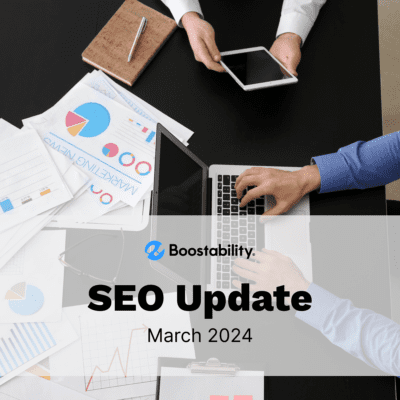General Trend
March has been the best month for Boostability in terms of rank gains this year. This is mostly thanks to a large Google algorithm update.
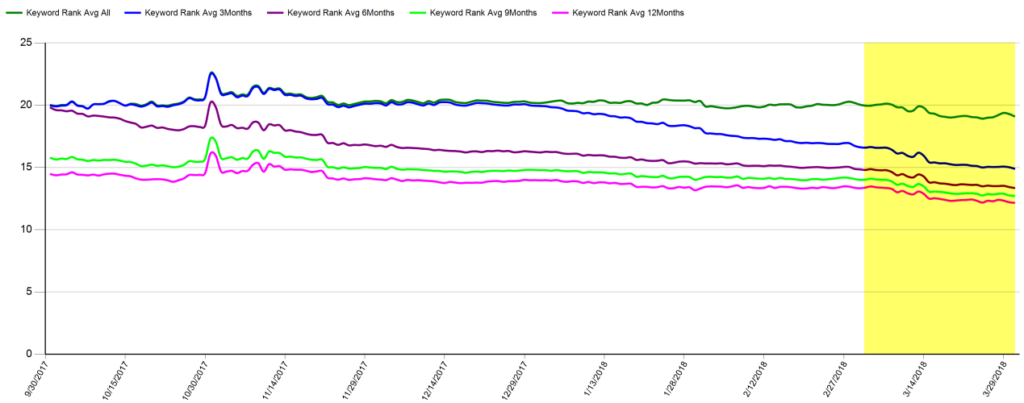
Below we will go more into depth on the update and what we suspect has changed. I will also cover some basics of underperforming accounts to help you identify and solve potential problems. And as always, we’ll cover what the strategy team has done for the month and key articles you may want to check out.
Massive March Update
There were two reported algorithm changes in March. One occured around the seventh and the other around the twelfth. Both updates were unnamed with only the March 7 update being confirmed by Google themselves. They stated that they released a broad update and that they routinely release updates to improve search results.
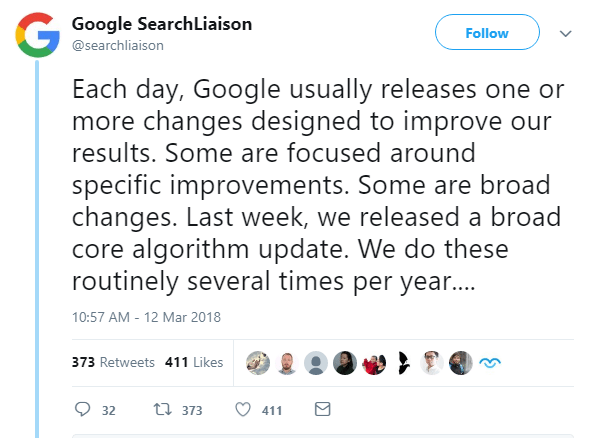
Google went on to state that, as usual, some sites will see gains while others may drop. They added that a drop in performance doesn’t mean anything in particular is wrong with a site. The March 7 update, at least, rewards pages that were previously under rewarded.
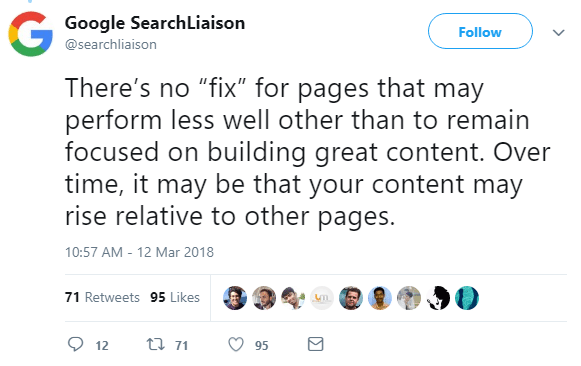
Overall for Boostability these updates were positive, which is always great to see. We also observed an interesting trend that occurred from a previously noted update.
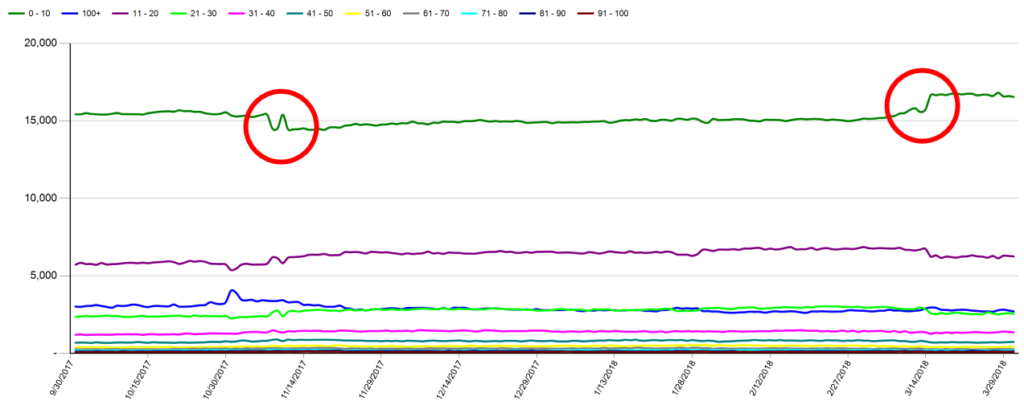
This trend seems to support the hypothesis that some updates may really just be tests that will eventually change or reverse. As always, we expect these positive trends to continue as algorithm updates and tests roll out. For the latest updates, there is no action necessary. Simply continue to make your site and content better and eventually positive rankings will come your way.
Understanding Underperformance
No one wants to see a bad ranking trend, which is why I wanted to take some time and note common trends you may see and how you can proactively resolve potential issues.

I always like to approach under performing like putting a puzzle together. You can see what’s currently working by who is ranking and slowly piecing together what may be missing by comparing the underperforming site with those that are successful. Most underperforming boils down to a few common issues going back to the basics around how SEO works. A few of the most common reasons for underperforming are a lack of authority, poor relevance, bad usability, or general confusion.
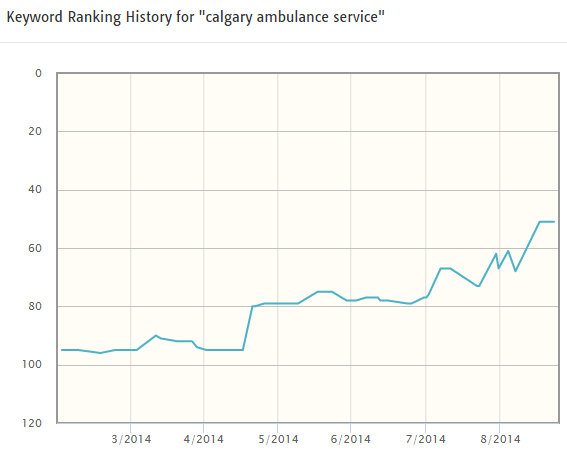
Authority
Usually when a site lacks authority or trust you see a stagnant ranking trend. This is caused by simply not matching or beating what other pages may have from a link and trust standpoint. While this is something you can often overcome with link building, it will likely take time and patience before you start seeing significant improvements.
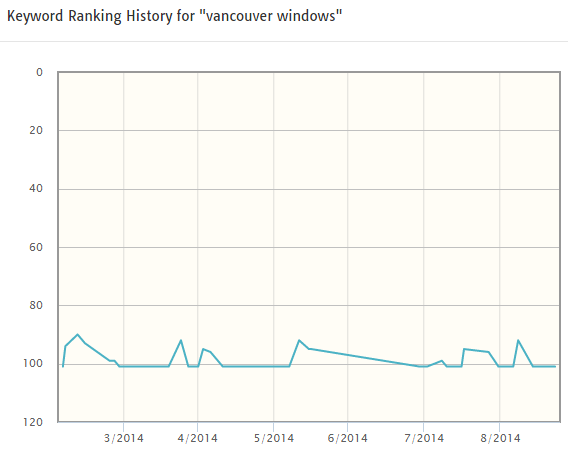
Relevance
Lacking contextual association with a topic or keyword can result in no ranking or a sudden drop in ranking. This can usually be resolved with content changes or additions. In extreme cases a user and search engine interpret the keyword or phrasing differently. It is always good to see who is showing up and how closely the content is to our target page.
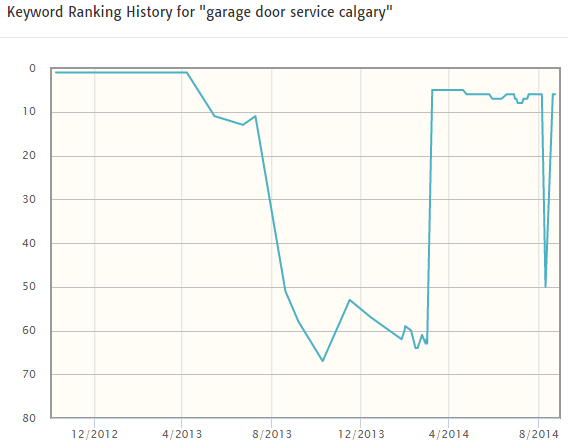
Usability
This occurs when users or search engines have a bad experience crawling, navigating, or taking action on a website or page. The trend is often seen as a drop from ranking on the first/second page. Resolving this could take A/B testing, more in depth content, better calls to action, or even diversified content (pictures, videos, testimonials, etc.). Simply review the page and see if there is anything else you can add to retain a searcher’s attention.
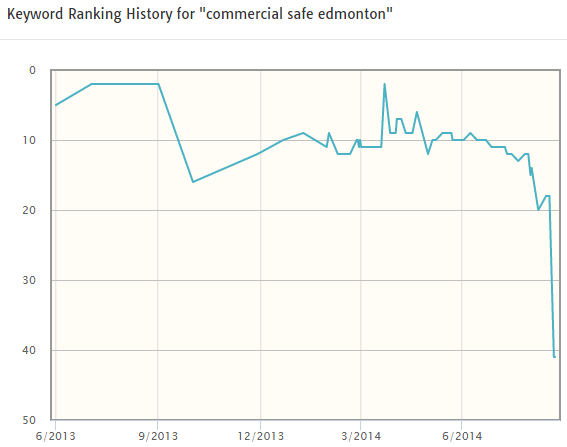
Confusion
Sending random or mixed signals to search engines and users often results in a bouncy or inconsistent ranking trend. A few things that may cause this are diversified content (listing various services), bad website uptime (400/500 errors), or having pages that are hard to crawl and index. Resolving this may require getting a new website or CMS, changing or increasing hosting, or even creating new pages or content.
As we have seen in our own trends, sometimes underperformance is an algorithmic issue. This is not as easy to diagnose or action. In many of these kinds of cases it is best to keep improving the website and working to make your content better. Constantly working to improve your website and the end user experience will always yield better rankings and more traffic.
Key Articles
SEO
- Google Search Console Uses 1 Index – Through some confusing tweets back and forth it was eventually confirmed that GSC data is sourced from 1 index and not a desk vs mobile index. (Source)
- March 7th Algorithm Update – Google officially confirmed via Twitter, but a Webmaster hangout revealed a bit more about what “increasing undervalued sites” really meant. (Source)
- Content Publishing Frequency – Despite this being note a few months back, it resurfaced and again confirmed that content frequency is not a considered factor when ranking a website. (Source)
- Bing Supports JSON-LD – After many requests and a lot of work it seems Bing now supports and recognizes JSON-LD schema markup. (Source)
- March 23rd Algorithm Update – Google hasn’t officially confirmed anything, but a lot of ranking flux and chatter has occurred which would indicate an algorithm change. (Source)
Social
- Social Media Use in 2018 – A new study shows how people use social media even more in 2018. This is not overly surprising but it does reinforce how important social media is for users and businesses. (Source)
- @-Tagging Could Improve Snapchat’s Effectiveness – A test is currently being run testing the user of @-tagging other in posts. This could expand how you can gain followers or potential customers. (Source)
- Zuckerberg Response to Cambridge Analytica Scandal – Facebook’s Mark Zuckerberg made a post responding to the Cambridge Analytica Scandal and announcing some changes to help prevent any other similar incidents. (Source)
- LinkedIn and Videos – LinkedIn will begin support two ways to utilize videos. One allows ads to show video content and the other allows company pages to also have a video. (Source)








